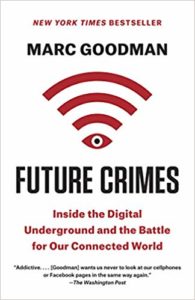When I was growing up, my parents taught me to be wary of strangers. “Don’t take candy from strangers” was ingrained in my memory. My parents also taught me to avoid dark alleys and the areas of town where danger lurked. They taught me how to stay safe in the real world.
While I’ve passed those lessons on to my children, a new danger has emerged. It’s the danger of the online world, of surfing the internet. It affects all of us, both young and old.
Criminals, who are always looking for ways to exploit weaknesses, have moved online to carry out their nefarious activities. Not only are the weaknesses easier to exploit on the internet, they are also easier to scale. In the real world, a thief has to rob a person or a store one at a time to make their money. They take the risk of doing it face-to-face hiding behind a mask. In the online world, a thief can write a script that can steal the credit card information for thousands of people at one time. The internet makes it easy for them to hide their identity and cover their tracks. They can also carry out their attacks from anywhere in the world, which can make it difficult to bring them to justice in the countries where the victims are located.
In Future Crimes: Inside the Digital Underground and the Battle for Our Connected World, Marc Goodman looks at how criminals are carrying out their online attacks, the risks posed by future technology, and what can we do to improve online security now and in the future.
Covering a topic as broad and important as internet security is a tough job. I give Goodman a lot of credit for taking on the challenge. He does a great job covering the topic and does it in a detailed and comprehensive manner. It makes Future Crimes a great read for anyone who wants to learn more about how online crimes are conducted and internet security in general.
Future Crimes is divided into three parts. In the first part, Goodman details how some of the biggest online hacks were carried out. In the second portion, he looks at the challenges of staying secure in the future as more and more household devices are connected to the internet. He finishes the book looking at what we can do to improve online security.
Overall, I agree with Goodman’s overarching concern. I have a fundamental belief that no matter what a programmer or manufacturer tells you, everything that connects to the internet is vulnerable. Everything can be hacked. Some items may be harder to hack than others, but eventually, the hackers will figure it out. And the one thing they always have at their disposal is human weakness. Some of the biggest hacks to date have not been due to deficiencies in the hardware or software. It’s humans who have freely divulged secure information to thieves through clever social engineering techniques employed by the hackers.
So what can the average internet user do? They need to educate themselves on the threats in the online world, just like they are educated about threats in the real world. Just like there are safe and dangerous people and places in the real world, there are safe and dangerous people and places on the internet. The key is being aware of the dangers and learning how to protect yourself. Too many of us are still learning, or worse yet, unaware of the dangers. It’s Goodman’s most important point about the future – we need to each take the initiative to educate ourselves about the dangers. It will take a collective effort to make the online world a more safe and secure place to be.
Overall, this was a tough review to write. The topic is very important, and it’s a tough one to cover. Once again, I give Goodman a lot of credit for taking it on. On the other hand, Future Crimes was a bit of a tough read. Goodman spends a lot of time on current and future problems before getting into his proposed solutions. While I understand that Goodman wanted to provide perspective on the problem, it made for a long read. So while I’m not suggesting the book as a Must Read, it is still a great read if you want to understand more about the problems and potential solutions to online security.


Pingback: My 2019 reading list - Gregg Borodaty